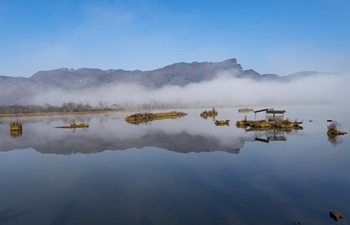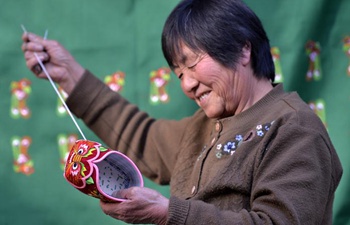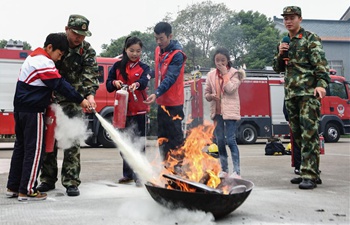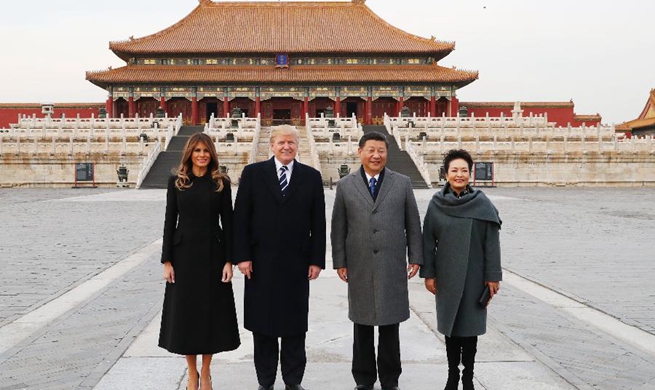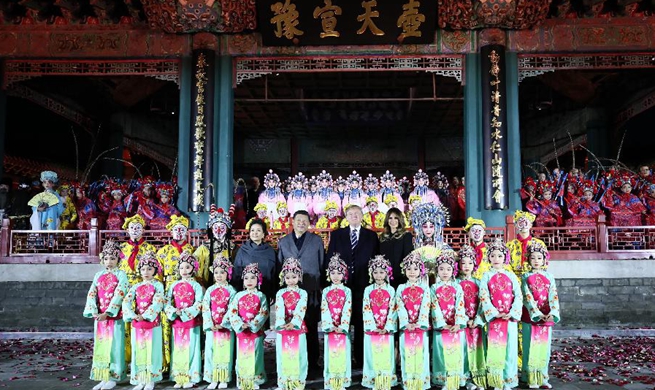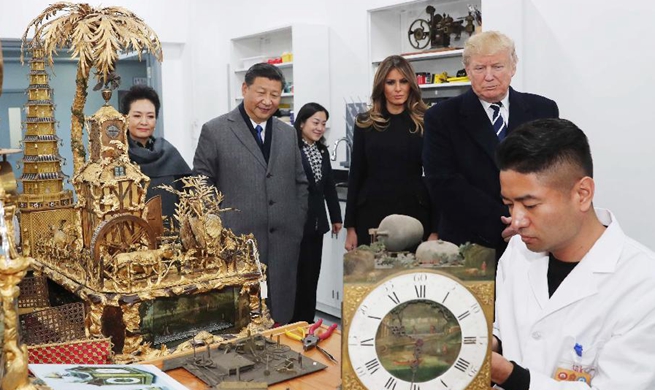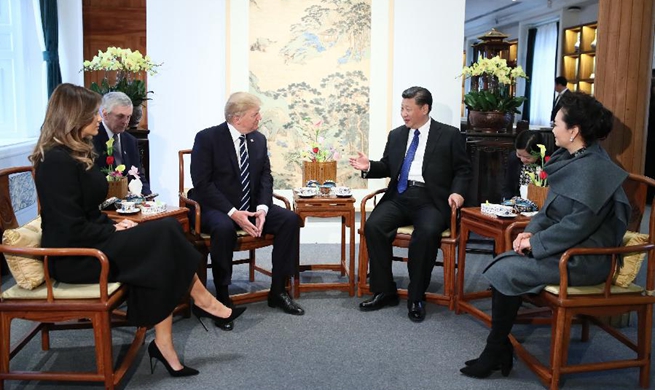by Eric J. Lyman
ROME, Nov. 8 (Xinhua) -- A regional vote in Italy's southernmost region -- the island region of Sicily -- may have an over-sized impact on the country's already unpredictable political landscape.
Sebastiano Musumeci, a former member of parliament backed by former prime minister and billionaire media mogul Silvio Berlusconi, came in first in the vote, with nearly 40 percent. In second, with nearly 35 percent, was Giancarlo Cancelleri of the anti-establishment Five-Star Movement. Limping to the finish line in third, with less than 19 percent was Fabrizio Micari from the Democratic Party headed by another former prime minister Matteo Renzi.
Because neither of the leading candidates was able to achieve a majority, Musumeci and Cancelleri will face each other in a second round of voting. Analysts said Renzi's chance of earning a new chance to become prime minister has taken a big hit, with Micari watching the second round of voting from the sidelines.
"The Democratic Party and Renzi have never been that popular in Sicily, but this is a game of expectations, and the expectation is that the party performed worse than expected and the other parties may have performed better," Ugo Arrigo, an economist and commentator from Milano Bicocca University, said in an interview.
The fallout was quick: after the results were announced, Berlusconi declared that his allies "stopped Sicily from falling into the hands of the Five-Star Movement," while Luigi Di Maio, the leader of the Five-Star-Movement, cancelled a scheduled debate with Renzi, declaring "the Democratic Party is politically dead" and no longer a viable rival for the movement he heads.
Despite the relative setback in Sicily, polls show the Democratic Party slightly ahead of the Five-Start Movement on the national level, and both leading Berlusconi's Forza Italia Party. A recent reform allows for parties to join forces to list a single candidate in specific districts, however, and under those rules united center-right parties led by Forza Italia appear to come out just ahead of the Democratic Party, with the Five-Star Movement in third.
"There's likely a political effort [on the part of Berlusconi and De Maio] to use the result in Sicily to marginalize Renzi, to make it seem like he is no longer a factor," Fabio De Nardis, a professor of political sociology at the University of Salento, told Xinhua. "But historically speaking, Sicily has for many years been a supporter of the center-right parties and I don't see how the result of the Sicilian vote would have a big impact nationally."
Renzi was Italy's prime minister for nearly three years, ending in December 2016 when he stepped down following a national referendum in which a key political reform proposal was rejected 59 percent to 41 percent. Renzi was replaced by an ally, Paolo Gentiloni, also a member of the Democratic Party.
Earlier this year, Renzi began the process or resurrecting his political fortunes and was soon after elected leader of the Democratic Party.
The national vote is scheduled to take place in the first half of 2018.






